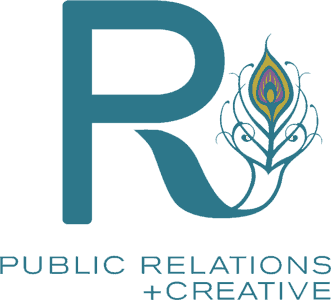Is a public relations (PR) specialist different from a journalist? The short answer is yes! Although there are many similarities between the two professions, they have distinct functions in both the marketing sphere as well as in their relationships with brands and the community.
Keep reading for our full breakdown of the differences between the two career paths—and why you might choose one over the other.
1. Amount of Responsibilities

At publications, journalists on staff typically focus on one main role. Editors will work with journalists to improve the strength of their writing, while journalists will focus on writing compelling stories for their beat. There is very little overlap between the two. The newsroom functions smoothly because each person within it has a defined job function that complements the others’ work perfectly.
Meanwhile, in the world of public relations, Public relation specialist will often wear multiple hats for each of their clients. They might write, edit, host in-person events, manage social media communities, and send marketing emails—sometimes all within the same day! There’s less of an opportunity to focus on one task or become an expert in any area, but the fast pace and daily variations for PR pros can be thrilling.
2. Different Audiences
When journalists write stories, they are always addressing the general public. Even journalists who cover niche beats, like car racing or local politics, write to address general audiences.
In PR writing, however, specialists write to address specific audiences that care about the brand’s messages. This can mean people who’ve selected to “follow” a brand on social media, employees, company stakeholders, or email subscribers. No matter who they are, at some point they opted into hearing from the brand, and they have invested in the brand’s story in some way. Because of this, PR writing tends to be a bit more targeted in content and tone, and it can also be a little more creative and whimsical in nature. PR writers might adjust for a variety of demographics, including age, region, gender, or relationship to the brand.
3. Differences in Tone

As mentioned above, journalists need to write stories that address large swaths of audiences and that approach news in an unbiased, factual manner. That means journalists typically need to follow a strict code of ethics in their writing. They also need to take a wholly objective approach to their stories. Tweaking a quote or message to fit better with the story is not acceptable and can destroy the public’s trust in that journalist and publication.
Meanwhile, public relations specialists get to let their creative flags fly when it comes to writing. PR teams select messaging, verbiage, tone, and mediums that best represent their clients and the stories they want to share—even if their claims are a bit biased or out there. PR specialists also don’t have to worry about including all the facts as a journalist does—they can pick and choose the messaging that fits the campaign best, whatever it may be. Molding a favorable narrative around a client, especially a company with a bad reputation, is hard work that requires lots of creative thinking and problem-solving in the writing space.
4. Main Goals

The ultimate goal of journalism is to share messages, information, and stories that the journalist believes would be interesting or helpful for their communities. Those messages might be positive (i.e., “Dog Saves Man From Burning Building”) or negative (i.e., “Company X Declares Bankruptcy”). But no matter what they cover, the journalist believes the details included within are important for the general public to know.
Public relations goals are more widespread and varied. Of course, public relations specialists want to share important information and messaging, but they also aim to create goodwill in the community, build consumer confidence, and craft a positive public perception of clients. That requires a level of bias that journalists simply can’t adopt. Because PR teams have a stake in a business’s health and revenue, harmonious relationships are at the forefront of every PR pro’s mind at all times.
How should I choose whether to become a journalist or a public relations specialist?
Recent graduates and others looking to make career changes should consider both options carefully and consider each role’s pros and cons. Do you prefer to tell unbiased stories or craft careful messaging? Do you like learning about many different topics or specialize in just a few? And do you like to build lots of relationships or focus on a few important ones? Journalism careers allow individuals to share important stories with the community, build a vast network, and write about many topics each week. Meanwhile, public relations specialists have the opportunity to control their own narratives, and they pride themselves on specializing in certain topics and curating strong relationships with fewer people. Ultimately, you should make your choice based on which sounds more appealing and which role matches best with your current skill set.
Want to chat with a team of PR professionals about their careers and lives in the fast-paced industry? Contact us to schedule an informational interview today!
